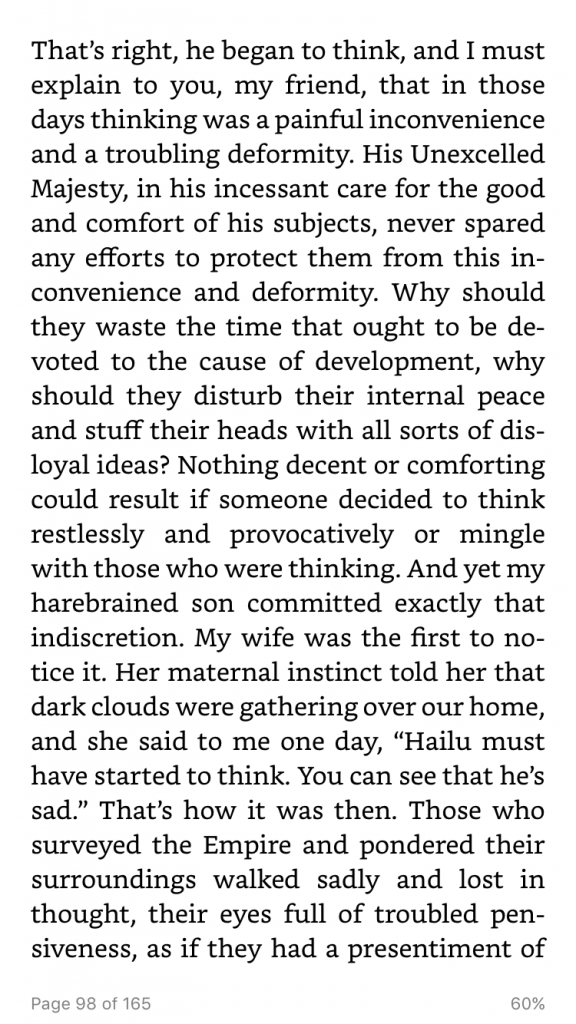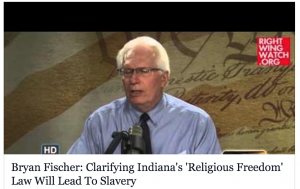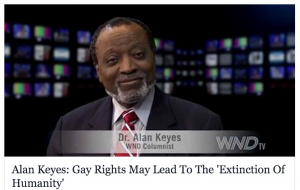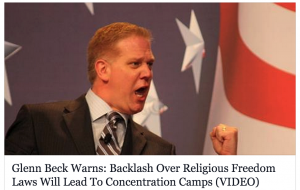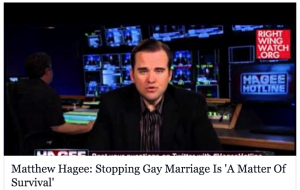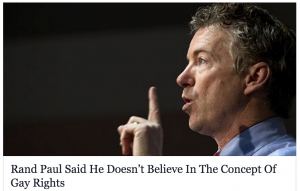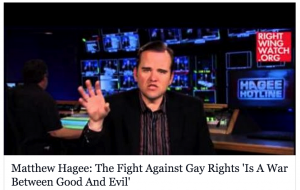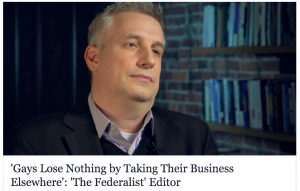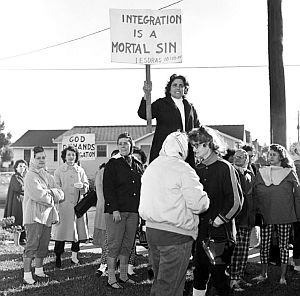The reality of healthcare is this: if we Americans wanted just one thing – access to health insurance (and therefore healthcare) without denial for pre-existing conditions – the reality is that would require regulation, government mandates, a mix of incentives and subsidies, and a policy that might make some insurance companies choose not to participate.
…which is basically what the Affordable Care Act did, but for several issues that were preventing Americans from getting not just affordable coverage, but treatment that wouldn’t bankrupt them.
The other thought I had this morning, was also related to very simple basic math, and the way things work: let’s say we do remove government “interference” from any and all private insurance. What would that produce? Actually, what DID that produce? Anyone remember HMOs (which generally only reimburse doctors and hospitals 10% of their costs)? Anyone forgotten how insurance company sought to do what completely unregulated businesses can do – which was to minimize expenses (not paying patient claims, denying care to anyone who might have an obvious illness or pre-existing condition, incorporating and establishing insurance plans in states with little or no regulation – thereby making it possible for them to simple avoid legal claims when they didn’t actually cover what their customers’ plans supposedly included)? Well, most of us do remember.
Also, this talk by some about how we shouldn’t be forced to pay for someone else’s insurance… Again, removing all government, you do realize that’s currently how insurance does in fact work, right? Even if you’ve never had a health crisis, you are in fact paying part of your premiums to cover health costs for another group that will. And that’s where the situation gets interesting… Insurance companies want to maximize profit and reduce expenses. And they increasingly try doing this by reducing and separating as many of the healthiest people possible from everyone else – making everyone else costs skyrocket beyond their ability to pay (effectively making any healthcare for them nearly impossible, or potentially causing them financial ruin), while the supposedly healthier remainder still has to deal with the other insurance company issues: they don’t even want to pay your claims, should you ever have them.
The ACA was an attempt to address these issues. And, if you really want to address these issues, the ACA provided the best private business + government regulatory solution possible. You can’t have a pre-existing condition “opt-in” for states, because the simple math already tells us what will happen – anyone who’s ever been sick with any serious before, will be priced out of the private market, if there are no minimum standards required and enforced by the government.
So, the question really is, do you only want to pay for your own health? If so, here’s what will eventually happen under unregulated private insurance: roughly 5% of you will have access to a relatively cheap couple of plans, which make you feel good about how you stuck it to the big bad government. A majority of people will be priced out – unable to afford the costs. The remaining small group who needs insurance and healthcare and is just earning enough to cover their higher premiums will do so out of absolute necessity – which means most of their income after mortgage and food will be consumed by insurance, instead of going back in to our consumer economy.
But most importantly, to those very few people who have affordable access to healthcare designed specifically for them (younger people with no detectible or pre-existing health issues), just wait until you get sick. That’s when the private insurance system you wanted so badly, will turn on you. They’ll either not pay your medical bills outright, or they’ll remind you of some fine print clause that allows them to avoid paying your claims, or they’ll find something in your medical history that justifies their denying your claims (up until 2014, they had thousands of employees dedicated solely to this type of work).
And after that, you’ll be forced into the “high risk” (and significantly higher priced) pool.
So, the attempt to solve all of these issues wasn’t some pinko-commie conspiracy to kill freedom. It was literally the most basic math and oversight necessary to actually solving the problem.
The saddest thing about this whole issue is that it has become so politicized, that regular people can’t even discuss the reality without supercharged rhetoric.
Sadder still, watching the majority party having spun themselves into a corner from which the only way out will be to remove all the things that actually make any public policy work.
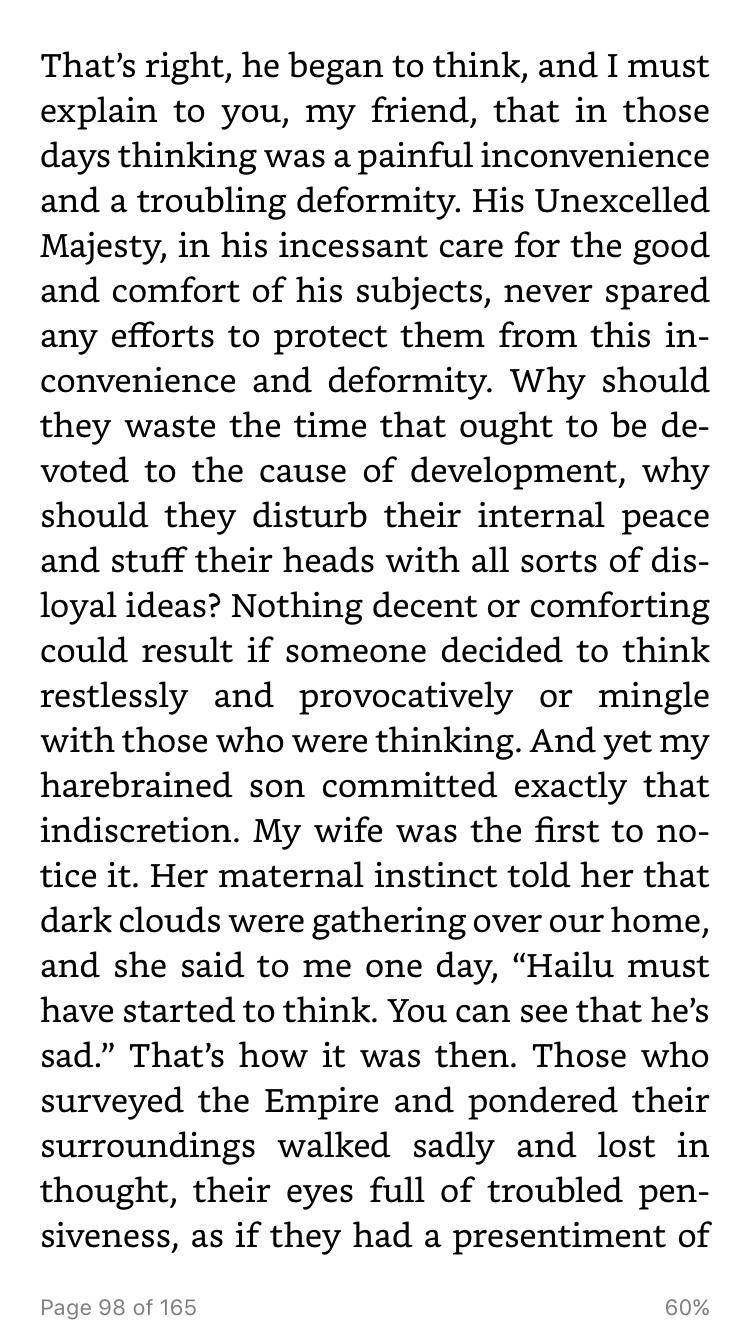
“Hailu must have started to think. You can see that he’s sad.”
Privatization efforts have become an increasingly popular farce force in American politics, with alarming resources being put into 1) cutting funding for (and thereby severely limiting the efficacy of) public programs, 2) using said reduced efficacy as supposed proof of the failure of public programs, and then 3) offering privatization as some great solution to the whole (fake, make-up) problem.
Here’s the simple truth: The real force behind efforts to privatize government and public programs is simple and pure greed. There are plenty of well connected business interests who would love nothing more than to insert themselves in between you and something you need, in order to profit from it. Privatization doesn’t eliminate or reduce the cost of anything — it simply adds a middleman.
But more importantly, all the rhetoric against any and all government programs has long since escaped any notion of reality. So, today, let’s understand why (some) government and public programs are not only important and essential, but literally impossible to privatize. The lessons here are applicable to almost any necessary service that promotes the general welfare, but we’ll start with education.
First, some facts: (note: figures vary by state, but overall averages are valid for purposes of this discussion)
- It conservatively costs more than $10,000 per year to educate a child from kindergarten through 12th grade (graduating high school), for a total of $120,000 lifetime individual investment in K-12 education.
- An average college education (4 year Bachelor’s degree from a state school, for state residents) will cost roughly $40,000 (paid by the individual).
- The average amount of individual (federal plus state) tax burden, or the portion of individual federal and state taxes which are allocated to education, is roughly $1,400 per year (or $16,800 for a K-12 education).
For those of you keeping score, it costs roughly $160,000 to produce one average college-educated individual, while the average lifetime cost to each individual tax-payer is roughly $57,000. The important thing to note here is the $103,000 every tax-payer is not paying to educate someone. So, who’s paying the difference? Well, before we get there, let’s talk about what we get from education.
- The average annual income for a high school graduate is $25,900, and we’ll assume this individual will work at least 39 years in their lifetime (calculations typically include data from age 25 to 64), for a minimum career earning potential of $1,010,100.
- Notes: Average annual incomes vary by upwards of 5x when comparing those with the least education to those with the highest. High school drop-outs, for example, average $18,900 per year in wages (or $737,100 in career earnings), while those with advanced and professional degrees can earn as much as $99,300 per year (or $3,872,700 in career earnings).
- For purposes of this discussion however, let’s just use an average calculation based on a standard 4 year degree (Bachelor’s) from a state school – for which graduates earn $45,400 per year or $1,770,600 over their entire careers.
Now here’s where the entire argument for or against privatization specifically of education hopefully becomes more clear…
The figures from the first half of this discussion, if taken alone, seem to show education is a big expensive waste of money, and a huge burden to the American economic system. Basically, it costs nearly 2.8 times more to educate someone, than we actually collect from individual tax-payers — with the difference made up by taxes on businesses and revenue from other sources.
However, when we factor in the second half of this discussion, we begin to see how investment in education perhaps might make some sense. For every $1 (from any source) invested in American education, we get more than $11 back into the American economy, from the income and wages earned by every individual over the course of their careers and professional lives.
But, wait. Weren’t we talking about privatization?
Yes. Yes we were.
Let’s say some group of politicians start telling you how you need the “freedom” to “choose” among greater educational offerings, where “private” schools can “compete” in a “marketplace” to give you better education. The entire position is based on an incredibly simplistic and straw-man reference to the system of capitalism (competition, efficiency, etc) we all know and love, but entirely leaves out the societal cost-benefit analysis.
Private education means you, the parent, will be required to pay the full cost of educating your child or children. The cost of education will not be spread among all individual tax-payers, and corporate taxes, and other tax revenue – but will be borne completely by you — the “consumer”. Private business also requires profit margins, so add 20% to the $10,000 annual cost. And, corporations also need to keep their investors happy by showing year-over-year growth of at least 5% — so, make sure to add 5% every year to your calculations. Also, let’s not forget that 2/3rd of households have no children, and people who do have children are generally are having fewer of them. This essentially means that $10,000 figure noted up top would need to be increased significantly before we even start privatizing education en masse because, in private business, no one else pays for anything you need.
And let’s not even get started on quality of education… We have seen, time and time again how private corporations will do everything possible to reduce costs, far beyond any notion of “efficiency” simply to maximize profits. In privatized education, the corporation will make sure your children receive the minimum benefits at the minimum cost. And since you can’t fire or un-elect your private school’s leadership, nor hold them accountable for how little your child knows upon graduating, you’re stuck – both in terms of out-of-pocket costs you just paid for 12 to 16 years, and for the reduced earning potential and lower wages your child will see in their lifetime due to the poor quality of education they received.
The above is basically (or should be) making clear some very important points: The government is us. The government will exist beyond our individual life spans. And, the government can afford to spend more money on some essential public programs than they get in direct reimbursement (immediate tax revenues), because they can also factor in the long term financial and other benefits to the entire market, ecosystem, or population — which in this case is very simply the fact that an average educated individual will return more than 11 times what we spent on them, back into the country, buying stuff, taking vacations, donating to worthy causes, building their own businesses (creating new jobs in the process), and investing in the economy.
If only the above data and references weren’t even necessary to this discussion… But sadly, the voices of privatization are exceptionally skilled at only telling you the part of the story that supports their flawed case.
Education is just one example where privatization literally makes no sense. Privatization is essentially an attempt by a few corporate interests to extract nearly half your child’s lifetime earning potential (and money that would otherwise go into every area of our economy) directly into their own pockets instead. By contrast, public education is willing to bear most of the cost of education, in exchange for enabling your child to go out into the world with increased earning potential and greater career options – which ultimately gives back more than $11 for every $1 spent.
When you hear the often attractive arguments for privatization, be sure and ask them to show you the lifetime cost-benefit of the public option compared to their private proposals, along with the actual year over year costs and increases you can expect from any switch. At least that’ll help keep the conversations somewhat closer to reality, for you and your family, and for society.
# # #
References:
- The Surprising Truth Behind Tax Day: Where Your Taxes Go
https://ourfuture.org/20140414/the-surprising-truth-behind-tax-day-where-your-taxes-go - How Taxpayers Benefit When Students Attain Higher Levels of Education
http://www.rand.org/pubs/research_briefs/RB9461/index1.html - Policy Basics: Where Do Our State Tax Dollars Go?
http://www.cbpp.org/research/policy-basics-where-do-our-state-tax-dollars-go - Lifetime Earnings Soar with Education
http://usgovinfo.about.com/od/moneymatters/a/edandearnings.htm - The Big Payoff: Educational Attainment and Synthetic Estimates of Work-Life Earnings
http://www.census.gov/prod/2002pubs/p23-210.pdf - Figure HH-6. Changes in household size
http://www.census.gov/hhes/families/files/graphics/HH-6.pdf - Households with and without Children, by City, School District and County (65,000 Residents or More)
http://www.kidsdata.org/topic/40/households-with-children250/table#fmt=462&loc=1&tf=79&ch=89,90&sortColumnId=0&sortType=asc

I opened up FaceBook today to find nearly a dozen screeching Republicans promoting their anti-gay stance in response to Governor Mike Pence’s announcement yesterday that he’ll ask legislators to “clarify” the new Indiana law he passed. The comedy here is that Pence repeatedly said the Indiana law has nothing to do with being anti-gay, and the moment he suggests some legislative attempt will eventually be made to insure the new law isn’t anti-gay, all the New Right conservatives immediately take up verbal arms to protest how the law that isn’t supposed to be anti-gay shouldn’t be clarified to be anti-gay. So, clearly, the law that isn’t about gays really is about gays.
What’s even more alarming is the tone of these anti-gay people which I’ve clipped directly from the top of my newsfeed in FaceBook. Preachers, politicians, some guy who used to have a show on Fox, and “news” reporters, all lined up to become eventual footnotes in the history books.
Now, this all started when a baker was sued for refusing to bake a wedding cake, after she found out the couple was gay. We heard the same arguments then, that everyone is free to do whatever they want in America, including discriminate against people who are doing no harm to them. What is hard to understand is how these people see absolutely no parallel between the words they say today, and those shouted by others in the 1950s against blacks. Or maybe it’s really easy: Stupid people don’t know they’re stupid. And so it goes, that every generation must fight ignorance with knowledge.
I’m guessing the number of cakes the aforementioned baker refused to bake for cheating spouses, racists, child abusers, “fornicaters” (single people having sex), people who eat shellfish or cut their hair around the temples or who have touched the skin of a pig, or all the school bully birthday parties …would add up to a grand total of zero.
I’ll see your “religious objections” and raise you a full religious hypocrisy (which, ironically, was kinda the whole point Jesus tried making, before he became the foundation of all Christendom).
But now, thanks to Gov. Pence and other like him now, these ambiguous laws are being proposed and passed, which are clearly intended to open the door for discrimination based on religious beliefs. While the arguments around “religious freedom” might at first seem to make sense, let’s just be clear about two things here: 1) In America, you do not have absolute religious freedom. As an individual, the government can’t take away your religion, but 2) you are also a member of a society that has always had the right to regulate individuals. If your religion believes in slavery or sacrificing virgins or executing adulterers, but the society in which you live believes it is NOT in their best interest to allow you to exercise your religious beliefs, then society wins. Period.
Now, some of your “strict” Constitutionalists might want to take up an argument over whether rights are absolute. Go ahead. But you have to do more than read the Constitution. You have to understand why it was even written.
- The Constitution declares the people have the right to speak freely to their government. But individual members of society don’t have the right to lie or deceive people. In fact, some of the Founding Fathers sued people for libel and slander (speech), because clearly there’s a difference between being prevented by the government from speaking truth to power, and lying to or about one of your fellow citizens. This was true in the beginning, and it’s true today.
- The Constitution declares the people can protect themselves with arms and militias, but society has always had a right to regulate individuals. There is no Constitutional protection for someone who goes shooting up the neighborhood or threatening his wife every time he gets drunk. If one of the Founding Fathers threatened another in such a manner, they – the very people who wrote the Constitution – would have no problem taking away his arms. Why? Because it’s just plain common sense. The right of the people to protect themselves is not jeopardized by regulation that protects the society from those gun holders who are not law-abiding peaceable citizens.
- People can freely assemble and protest. The government can’t stop that. But individuals can’t block our freeways, risk public safety, or prevent the rest of us from getting where we need to go. We all know this. Because, common sense.
The examples could easily continue, but perhaps let’s save that for a future post on “strict” versus common-sense interpretation of the Constitution. Back to the matter at hand:
So, why shouldn’t religious people be allowed to discriminate against serve whomever they wish? I mean “it’s nothing like discrimination against blacks in the 1950s” right? Wrong. It’s exactly the same.
The majority of Christians opposed desegregation and inter-racial marriage up until them thar pesky liberals and progressives said ‘enough is enough’ and forced them to accept blacks by law, or face punishment by force of government (also known as “the people” or society).
And remember, those Christians even cited all the parts of the Bible that talk about how different people shouldn’t intermingle, the parts that mention slavery, and an overall interpretation of any possible reference they could find to justify their bigotry against blacks – just as they look for anything to justify their anger, bias, bigotry and even hatred towards gays today.
If you’re operating a business that serves the public, society has the right to tell you who counts as the “public” in our country.
Today, gays must be counted as members of our society. Yesterday, it was blacks. Before that, women. And before that, it was Catholics and Jews. Remember when stores didn’t want to serve people based on their religion? If you don’t, you should — It’s kind of important.
Basically, if you go into business to serve the public, then you must serve the public. If you go into business just to serve “your kind” of Christians, then you’re at odds with the public interest and society.
In the south, people opened businesses catering only to whites, and the preachers and politicians supported them, and the banks only loaned money to white business owners – and all of this resulted in an entire community, town or county – even states – where simply being black prevented you from enjoying your life and liberty and opportunities the same as everyone else. It was in the public interest to tell racist business owners and banks that their right to discriminate ends when they open a public-serving business.
It’s in our public interest today to do the same for these people today who claim religious right to discriminate against yet another in a long list of people who weren’t hurting anyone. Yes, you bigoted discriminatory Christians are reading a different part of the Bible in order to justify your behavior (Leviticus this time, instead of those passages about slavery and mixing different peoples), but you’re still behaving just as poorly as the last generation of religious bigots.
I’m sorry you don’t see the comparison, but that’s why religion and state are separated in this country. You can believe whatever you want. You don’t have to approve someone else’s choices in life, but you must respect them. Otherwise, you’re only proving you don’t really understand God, or Jesus, or freedom at all.
Your behavior also means you need a reminder of what “religious freedom” looked like the last time this happened:

I love eggs and bacon. I eat eggs and bacon at least once a week – and sometimes several times a week. And I will keep on eating eggs and bacon, until they pry those over-medium golden yolks from my cold carotid arteries. But there’s not a year that goes by where I don’t see some report from a scientist or individual researcher saying eggs are bad, which seems immediately followed by another report by another scientist telling me eggs are good. My reaction to this is natural – I ignore it, because the research and science seems weak and unsubstantiated. But let’s make something perfectly clear here: Climate change isn’t like eggs and bacon. read more…
By “Moyers & Company.” For more, here’s Bill’s website, YouTube channel, and Vimeo channel. Wish we had more populist, progressive journalists like him.
Georgia is losing private hospitals because the costs of taking care of the state’s overwhelmingly poor and uninsured population is not a sustainable (profitable) business proposition. Georgia’s governor (Nathan Deal – Republican) could solve the problem for both hospitals and uninsured, by adopting the Affordable Care Act – which costs the state absolutely $0 for the first three years. After three years, Georgia only need pay 10% of the costs. read more…

53 years ago today, 6 year old Ruby Bridges went to school, while people screamed “integration is a mortal sin” and “segregation is a states right.” read more…
They say you must have that baby, but they refuse to do anything to help you avoid getting pregnant, or to support you if you do, or to help you personally and financially care for your child after it is born. For that reason, they can’t call themselves “pro-life.” read more…
Once again the UK news organization, The Guardian, is doing more to inform Americans on American issues than the American media. I may write more on that issue later – but for now, let’s focus on the droughts in Texas.
Record droughts are drying up Texas, but if that weren’t bad enough, water supplies are also being drained by “fracking” operations (the process by which oil companies use hydrolic pressure – water mixed with chemicals they don’t have to disclose – to fracture and suck up oil solids buried far underground). There are thousands of fracking installations in Texas, and each one could use up to 8 million gallons of water. read more…

